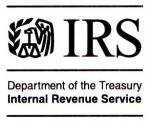NCSHA Blogs
FHFA Modifies Fannie Mae and Freddie Mac REO Sales Requirements
The Federal Housing Finance Agency (FHFA), on November 25, directed the Government-Sponsored Enterprises Fannie Mae and Freddie Mac (GSEs) to amend their rules on the sale of real estate-owned (REO) properties currently under their control. Under the new policy, the GSEs will be able to sell existing REO properties to any qualified buyer based on the property's fair-market value, as determined by the GSEs.
New FHFA Strategic Plan Encourages Fannie Mae and Freddie Mac to Work with HFAs
The Federal Housing Finance Agency (FHFA) released on November 21 the final version of its strategic plan for fiscal years 2015-2019. The plan outlines FHFA's goals and priorities for overseeing Fannie Mae, Freddie Mac, and the Federal Home Loan Banks (FHLBs).
House Committee and Subcommittee Leadership Positions Announced
This week, House Republicans and Democrats in their separate caucuses finalized their choices for key Committee chairmanship and ranking member slots in the next Congress.
Watt: FHFA Decision on Housing Trust Fund Due By End of the Year
The Federal Housing Finance Agency (FHFA) will determine whether Fannie Mae and/or Freddie Mac should begin making contributions to the Housing Trust Fund by the end of the calendar year, FHFA Director Mel Watt told the Senate Banking Committee on Wednesday. Watt addressed the Committee during its hearing on “The Federal Housing Finance Agency: Balancing Stability, Growth, and Affordability in the Mortgage Market.”
Report Finds FHA’s Mortgage Insurance Fund Back in the Black
Yesterday, HUD released its Annual Report to Congress on the Financial Status of the Federal Housing Administration’s (FHA) Mutual Mortgage Insurance Fund (MMIF). The report finds that the MMIF, which funds FHA’s single-family and reverse mortgage programs, has a positive value for the first time in two years. However, its capital ratio still falls below its statutory minimum.
FHA Extends Short Refinance Program Through 2016
Last week, the Federal Housing Administration (FHA) released a Mortgagee Letter announcing that it has extended the Refinance of Borrowers in Negative Equity Positions (Short Refinance) program until the end of 2016. The Short Refinance program allows borrowers who owe more on their mortgages than their properties are currently worth to refinance into more affordable FHA loans. It was initially set to expire at the end of this year.
Moody’s Finds HFAs’ Financial Outlook Stable
Moody's Investors Service (Moody's) released a report earlier this week predicting continued stability for HFAs for the next 12 to 18 months. The report says this prediction is based on Moody's' expectations for the business, financial, and economic circumstances in the HFA sector.
Judge Rejects HUD’s Disparate Impact Rule
On November 3, US District Court Judge Richard Leon filed an opinion vacating HUD’s final rule on Implementation of the Fair Housing Act’s Discriminatory Effects Standard, commonly referred to as the Disparate Impact Rule. The rule had codified HUD’s interpretation of the Fair Housing Act, which held that practices with discriminatory effects violate the Fair Housing Act, regardless of whether or not those practices intentionally discriminated against protected classes.
Standard and Poor’s Report Finds HFAs Financially Stable
In a report released earlier this month, Standard and Poor's Rating Service (S&P) found that HFAs' financial ratios remained stable in fiscal year (FY) 2013 after two consecutive years of improvement. As a result, S&P notes that it has made no adjustments to HFAs' issuer credit ratings since October 2013. Of the 24 state HFAs that S&P rates, 20 of them have an "AA-" rating or higher.
IRS Publishes Housing Credit and Bond Caps for 2015
On October 30, IRS published Revenue Procedure 2014-61, establishing inflation-adjustments for various tax provisions and setting the Housing Credit and Private Activity Bonds volume caps for 2015. For calendar year 2015, the state Housing Credit ceiling will be the greater of $2.30 multiplied by the state’s population or $2,680,000. While the multiplier remained at the










